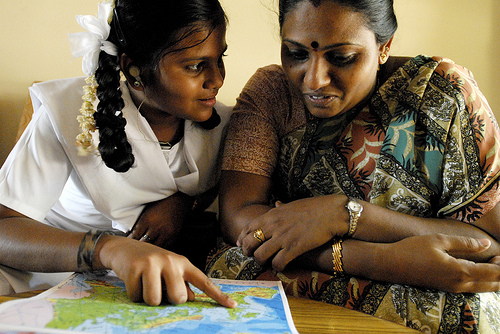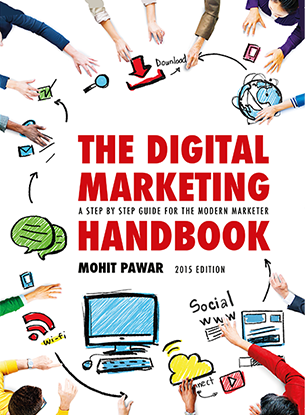 Education currently adopts “one size fits all” approach.
Education currently adopts “one size fits all” approach.
This needs to change.
In current system, Individuals are built around education. In future education will be built around individuals. It will cater to individual needs first rather than being driven by motives of institution builders.
Today students have little choice but to follow a fixed set of curriculum, class size, and timings.
In case of professional education, students can choose from a set of optional subjects; many of these are non-credit. So there is no incentive to study them. In case of elementary education, such options are also not there.
In future education will be location and time independent. This shift is already happening with the likes of Academic Earth making an attempt in this direction.
It will be customized. Forward looking institutions will look out of the box to serve their customers (students) better. No need to reinvent the wheel. For example; an institution can tie-up with a service like Hunch which is working brilliantly on building individual taste profiles. Educational institutions can build their offerings on top of it.
It will be win-win for both institutions and individuals. A sea change from today, where institutions for learning create programs what they think will find takers. They do find takers in absence of better offerings which makes them think that they are doing it right; and the cycle continues.
Educational institution needs to see itself as an enterprise. This requires a change of mindset. What will drive this change? Probably the emergence of model institutions which will pose a threat to the existence of institutions set in old ways of thinking. Not that everything about old is bad. Improvement will also come from going back to roots — like the old ‘gurukul’ system; where individual attention was at the core.
Wisdom of crowds will help design better programs. This will be a change from feeding students with predefined programs and then asking for feedback.
This is a no-brainer. Video (on mobile devices) will be used extensively to teach and learn. Educators will used resources like TED to expose students to variety of thoughts and world views.
Teachers are using platforms like WiziQ to create online learning environments and incorporate feedback on the go.
Tools like SlideShare Zipcast will be used to conduct classes for a geographically diverse student base. The key is free here. Nobody can use lack of money as an excuse for not trying out new things. Webinars and online training programs will get out of the realm of online marketers and find a wide spread base.
Educators like John Maeda have been using blogs as a tool to record and share ideas, for long now. Such usage of new media tools is bound to increase.
Experimentation will become order of the day. It will not be something which only experimental schools like the ones run by Jiddu Krishnamurti’s foundation use. In these schools there are no traditional examinations till 10th standard.
People have been homeschooling their kids for centuries now. More people will home school their kids and adopt new ways to facilitate the learning for their kids.
The acceptance for those with real knowledge will increase. No longer will a badge (degree) be required to be seen as successful. This trend will motivate more people to follow the unconventional path of learning
Action and learning will precede theory in many cases. Teachers and parents will not be afraid if a student wants to pursue entrepreneurship while still in school.
Internship which most students explore as part of professional education – management, engineering etc. will be built in early stages of education as well.
Field visits, interaction with leaders, and training on – how to tell stories, how to write, and set of life-skills — will be seen as an essential part of an individual’s learning experience. There will be an increased focus on experiential learning and problem solving abilities.
Failure will be rewarded as a mean to encourage exploring further and eventually to help students become well-rounded individuals in life.
Education in future will aim to nurture and not suppress. It will let the person be and not suggest what the person should be like.
How do you see the “future of education”? Share in comments.
I encourage you to build on this post and write your own version of future of education; when you do please link to the original. Thank You.



I wholeheartedly agree. In the future, education will be, and must be, personalized to each student.
I believe education in the future will, and should, also incorporate emotional intelligence and social intelligence, in addition to academic intelligence.
And education will, and should, also be family-holistic. Learning just in a school or organization isn’t enough. A child’s education must also come from the family & home.
Hey Mike, appreciate you adding to the ideas. I like the family holistic part. Home is where the right foundation can be built for a fulfilling and bright future.
Loved your blog!
You covered almost everything about education and I hope most of it will be true. It needs to be.
Your blog suggests that the content will get democratized and therefore, the responsibility of learner will increase. Therefore, what I think is that we should figure out a way and create situations that education becomes a need for the learner. Examples can be task based learning. Suppose, the task is to find how plants get their food, and student has to find out about photosynthesis(Couldn’t think of a better example).
That way, If we can automate learning, educators will get more time to build character and attitude. That will be one big leap forward to a much better society.
Aviral
Aviral, loved your comment.
Task based learning built around the interest and aptitude of learner is a workable idea. Society also needs to value and appreciate the role of educators; and this should reflect in what they earn. Then I guess many more will follow this path.
Hi Mohit,
My company is also working on your mentioned topic.
Mount Litera Zee School (MLZS) is taking another leap to redefine the future of education in India through an event ‘Future of Education Summit 2011’ (FES2011). This event is organized by MLZS in association with Zee News Limited, India’s largest news network. Thought leaders from India and abroad, across academia, industry, government, bureaucracy, students, and teachers are coming together to envision the future of education. This summit will be held in New Delhi, India on 14 November 2011.
Visit us at: http://www.mountlitera.com/fes2011/
Hi Rakesh,
Thanks for sharing.
Good luck with your event.
Good article Mohit. Indeed, a technological revolution in Education is what is being stressed upon here. But I must point out that technology is but a small part of the larger need for efficient and effective Education. Revamping Education system is not possible by using technologies or just innovating newer ones including the mindsets of people.
2 Key technological entities, 1. Teachers & 2. Cirriculum/Study material, need to be targeted. Mere technological innovations hold no importance is these two aren’t dynamised. These 2 basic technologies are enough to take care of effectiveness of Enlightening fresh minds. Other innovations as pointed out in the article will then surely add value to the process.
Regards.
Thanks Bhagirath for sharing your thoughts.
You are right about teacher + curriculum angle. Think, teachers needs to be paid better and curriculum design should be more dynamic and not something which is done once every five years.